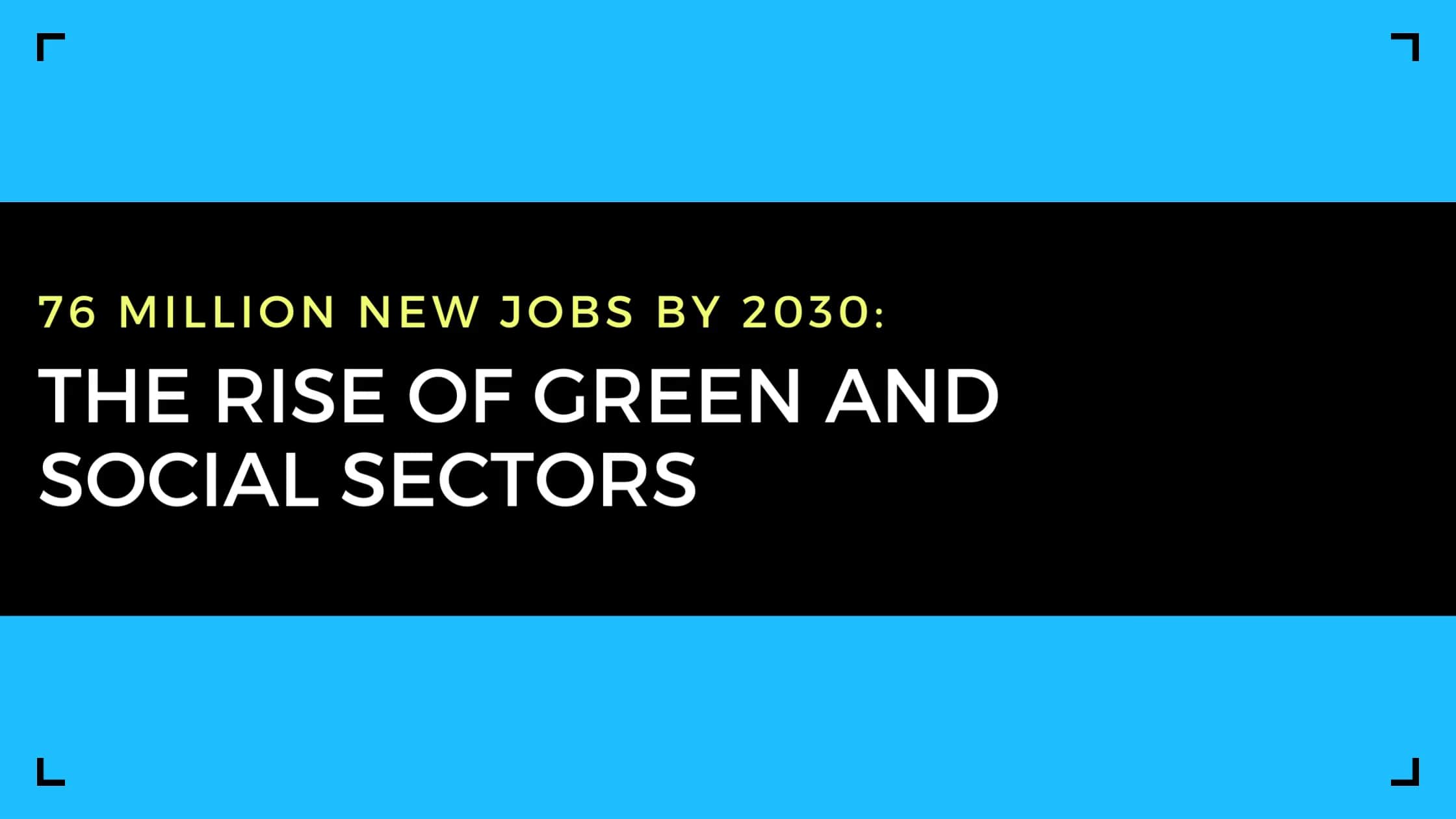With the demand for skilled workers rising, simply boosting the population won’t be enough to solve the labour challenges. Instead, it’s crucial to invest in training for both current and future job markets, from high-demand positions to those that have yet to be created.
The labour challenges facing developed countries are complex and multifaceted and will require a variety of policy solutions to address. In Canada, the current lack of workers is expected to get worse, with more than one in five Canadians close to retirement age — between 55 and 64 years old — which Statistics Canada reports being an all-time high in the history of Canadian censuses.
More than 75 million new green, social jobs by 2030
Ongoing technological advances also mean that the needs in the labour market continue to evolve, resulting in greater demand and competition for international students in Canada and elsewhere.
The World Economic Forum (WEF) has stated that increasing the number of social jobs, particularly in education and healthcare, can improve social mobility and address human capital concerns. In the same vein, promoting green jobs is crucial to facilitate an environmental transition and counteract the damage caused by prior generations.
Society now finds itself backpedalling to mitigate the damage driven by the industrial revolution. Efforts to make the world healthier, smarter and greener create opportunities for good-paying work. The WEF white paper predicts an unmet need for 76 million new jobs in the world’s major economies in green and social sectors alone by 2030.
Clean tech accelerates transition
Green businesses are taking hold. A good example is growth in the plant-based sector. Beyond Meat, for instance, has done business in 85 different countries, challenging factory farming. You have probably also noticed an uptick in the number of electric vehicles — from auto manufacturers Tesla, Rivian and Ford, to name a few — on the roads lately.
Governments worldwide are increasingly taking bold actions to address climate change in a meaningful way, such as implementing carbon pricing policies, investing in renewable energy, and setting ambitious emissions reduction targets.
In April 2021, the Canadian government announced a $5 billion investment in the Net Zero Accelerator Program, which aims to support the growth of clean technology companies and accelerate Canada’s transition to a low-carbon economy.
Opportunities for private colleges
That leaves both opportunity and responsibility to the private sector, which can pivot quickly and effectively to prepare the youngest generation to become skilled to meet future demand.
The private college sector has been, by necessity, nimble over the past two to three decades. That’s reflected in the business valuations private schools are showing, attracting tier-one investors that were not previously in the game.
Private colleges have responded to the shift away from traditional arts programs, training students in the skilled trades, supporting the healthcare sector and filling the needs as they develop to accommodate change.
The current need for personal support workers and the colleges’ response by registering more students and providing more distance learning opportunities is an example of the need colleges are filling.
More truck driver training aims to fix a broken link in the supply chain. And denturist programs are now preparing to fill needs created by the aging of Baby Boomers.
Allied health professional jobs, which require specialized training, are also evolving. There is evidence that gene therapy could replace radiation and chemotherapy treatments.
Invest in job creation
Today, the focus of the government and industry is on skills development. In recent years, we’ve seen determined discussions about how to add more plumbers, masons and electricians to the job market, and private colleges have responded.
The opportunities, now too, are in the green jobs.
The WEF white paper, part of its series examining proactive job creation investments that yield broad societal returns, is a call to action for businesses and government to invest in job creation and training for these jobs. The goal is to help create more inclusive and sustainable economies and societies around the world.
This approach has the potential to become a new kind of industrial revolution, overturning the negative impacts of the industrialization process that began in the 18th century. How ironic that the training most likely to lead to prosperity in 2023 and beyond, is focused on unwinding the many messes we have made in the past!
Look forward to your comments, criticisms, and feedback! Thanks for reading.
